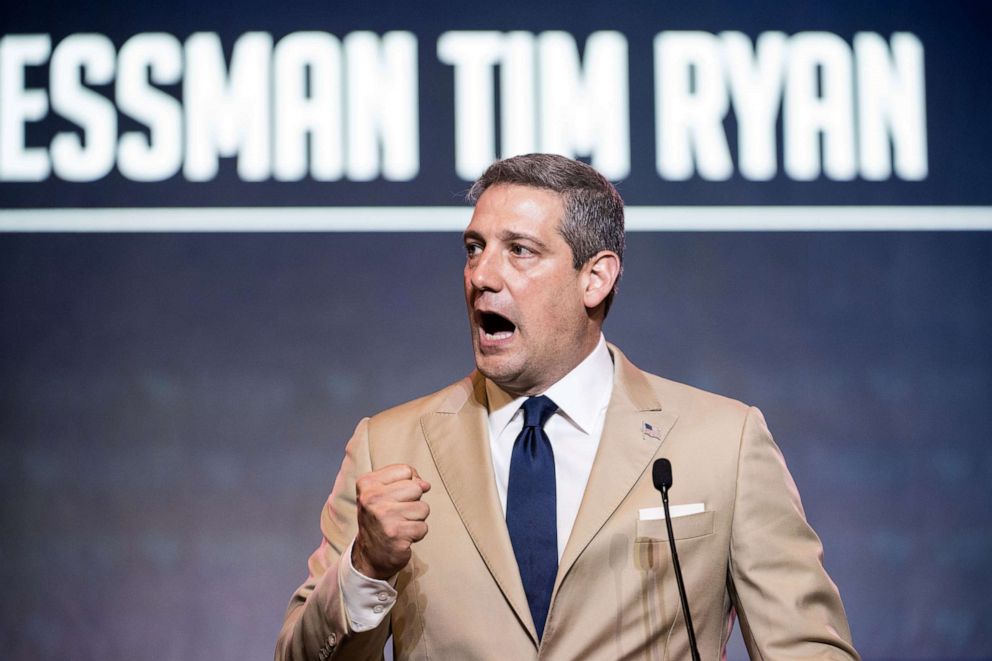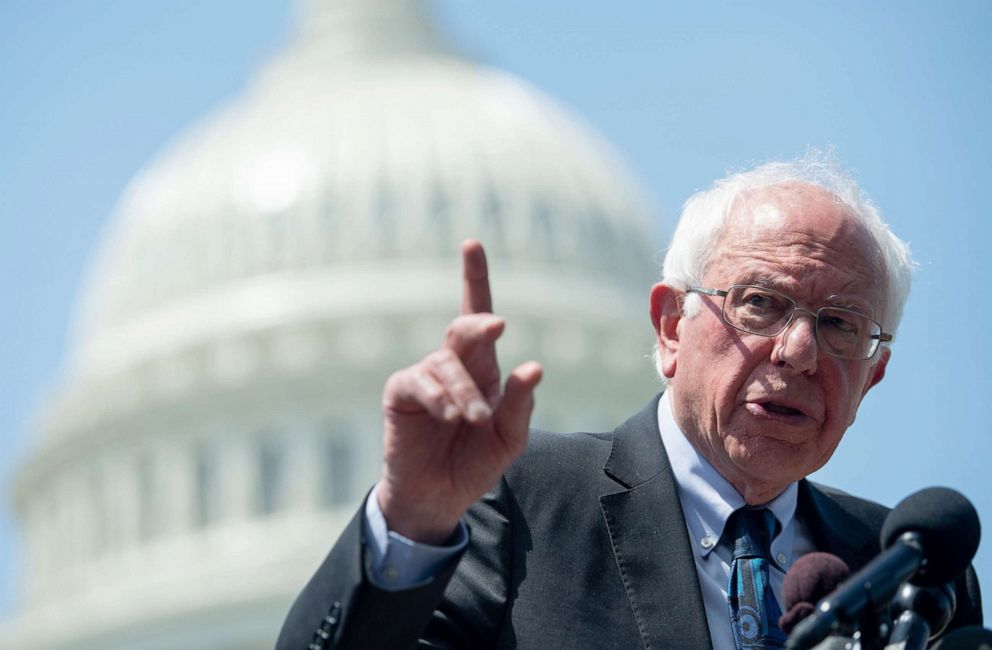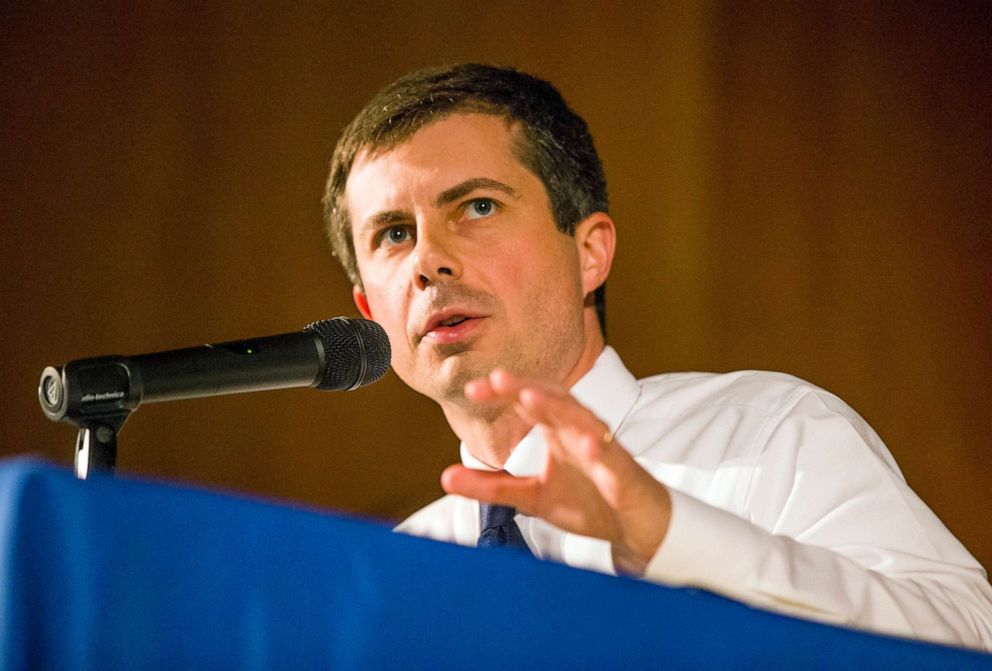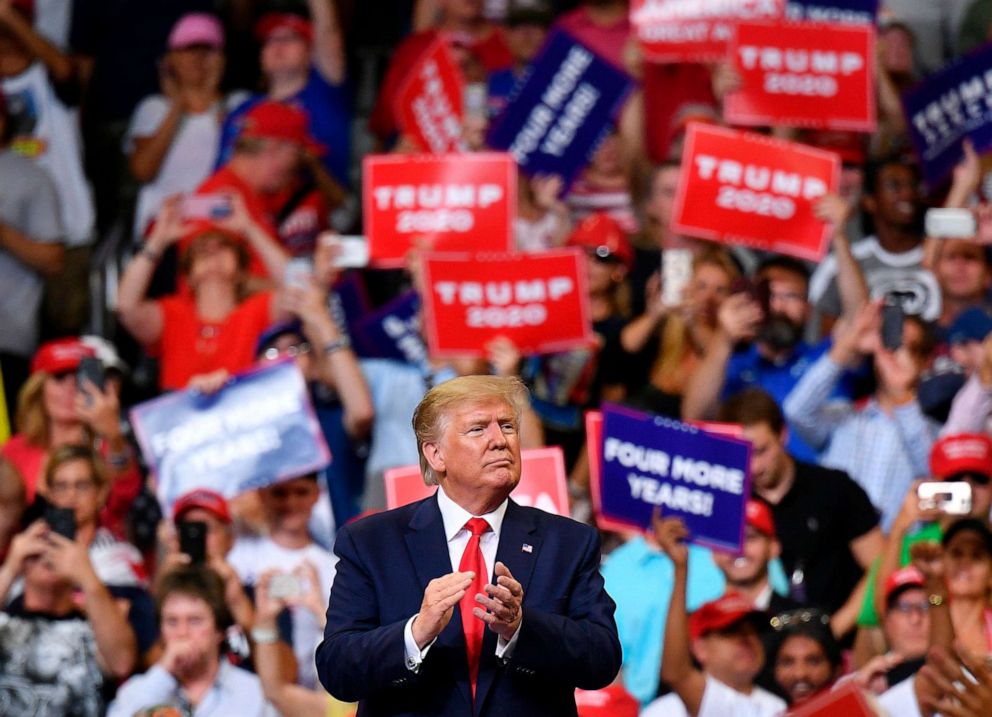'Speed dating with the American people': Crowded Democratic field seeks to shine during 1st Democratic debates
The candidates won't have much time to make their case each night.
With the first primary debates set to kick off Wednesday in Miami, the Democratic candidates have been preparing to make their case to the American people for why they -- and not one of the other 19 debating over two nights -- should be the person to take on President Donald Trump in the 2020 election.
The candidates, however, won't have much time on stage to pitch their campaign. According to NBC, the network hosting the first debates along with MSNBC and Telemundo, each two-hour televised night will be separated into five segments with four commercial breaks. Candidates will only have one minute to respond to questions and just 30 seconds to respond to follow-ups. The candidates also will have an opportunity to give closing remarks, but there will be no opening statements.
"It's going to be really hard for some people who aren't equipped with the ability to edit ... it's really hard for a politician to give any kind of answer in one-minute increments," former Sen. Heidi Heitkamp, D-N.D., told ABC News in a phone interview.
Ohio Rep. Tim Ryan, who started preparing within the last two weeks, said the short time limit is his "biggest challenge" as he prepares to take the stage on Wednesday.
"For me, it's really trying to condense everything … into one minute. I mean, it's literally going to be speed dating with the American people," Ryan told CNN Tuesday. "So within one minute, you've got to leave some impression with them about who you are, where you come from and what you stand for."

This may be an opportunity for a candidate like Ryan, who's lower polling average landed him on the outskirts of the debate stage, to have a breakout moment.
"There’s so many opportunities for the candidates who are not polling as well," Democratic strategist and former Democratic National Committee Chairwoman Donna Brazile said in a phone interview. "It’s an opportunity for them to say, 'Hey, what about me?'"
"The people who are always going to benefit the most from this, regardless of format, are going to be the people who you don't know," Heitkamp said, adding that the candidates with the greatest name recognition -- former Vice President Joe Biden, Massachusetts Sen. Elizabeth Warren and Vermont Sen. Bernie Sanders -- have the most to lose during the debates.
"People have an expectation of them," she said. "You always want a lower expectation. People that people have high expectations of, I think, have the most to risk."
Biden has been preparing for weeks by reading briefing books and participating in rehearsals, people familiar with his preparations told The New York Times.
ABC News political analyst Matthew Dowd said Biden is under the most pressure, a point Heitkamp echoed, telling ABC News that the highest expectations are going to be for the former vice president.
Sanders told CNN that he's been "studying the issues" and trying to hone how to contrast his vision with his competitors on stage Thursday night, but said he won't "get into personal controversy and gossip."
"We are going to be debating the real issues facing the American people," he added.

Brazile said the challenge for Sanders will be whether he can again be "the Bernie" of the 2020 race, a reference to how he shook the establishment during his 2016 presidential run.
"He was the one who essentially got Democrats on their feet by challenging the party from the outside in," she said. "Does he still have enough fuel in his tank to be the sort of outsider, insider establishment candidate?"
Washington Gov. Jay Inslee has been preparing by holding mock debates with his team, communications director Jared Leopold told ABC News. He started preparing in April.
"This debate prep is unlike any other that he or anyone else has ever done," Leopold said, referencing the sheer number of candidates on stage with him. "Rather than focus on a lot of back and forth (between the candidates), our focus is largely on the governor presenting his message."
Leopold added that the rapid-fire format of the debates due to the number of candidates running is part of the reason Inslee has been calling on the DNC to hold a debate specifically on climate change, the signature issue of the governor's campaign.
"There's a lot that needs to be discussed with climate change that can't be solved -- can't be answered in-depth in 30 seconds, 60 seconds," he said.
Dowd said Warren, the highest-polling candidate on stage Wednesday night, could stand to benefit by not sharing a stage with most of the other early front-runners -- Biden, Sanders and South Bend, Indiana, Mayor Pete Buttigieg.
Standing next to Biden and Sanders could work for Buttigieg, as the two candidates are about twice his age.
"It shows the Democratic party is looking ahead and not just looking back," Dowd added.
The 37-year-old mayor told supporters at a private fundraiser in Ft. Lauderdale, Florida, Friday that he's excited for the debate, and while it's important to win "it's also really important for us to recognize that the way to win is not to try so hard to play it safe that we inspire nobody."
Dowd said the question over the two nights will be whether the "dominant players" can continue their momentum, or gain even more, and whether some of the lower polling candidates, noting California Rep. Eric Swalwell and New Jersey Sen. Cory Booker "can get some footing."

A campaign aide for Booker, who will be next to Warren on the first night, told ABC News that Booker isn't looking for a "breakout moment" during the debate, but rather wants to introduce himself to a national audience. The aide said Booker, whose debate prep rituals include doing push-ups, eating popcorn and drinking "lots" of LaCroix, wants to reiterate his larger campaign message and push some of the details of his policy proposals, like his plan to grant clemency to more than 17,000 nonviolent drug offenders by executive action.
Former Maryland Rep. John Delaney, however, is hoping to "make a little bit of a splash," Michael Hopkins, his national press secretary, told ABC News.
Delaney, who will debate on the first night, has been preparing by watching the crowded Republican primary debates of the 2016 election. He plans to "be more about substance than about flash," Hopkins said, but also will hit Booker and Warren over their support for Sanders' Medicare-for-all plan.
Dowd said the debates in June and July are the "group stage" and the candidates need to be focused on getting to the "knockout stage," which he said starts with ABC's September debates, which have stricter qualifying guidelines.
"The candidates that are polling at 1 or 2% have to figure out a way" to get to those debates, Dowd said. "Can they get themselves to September? I think that's got to be their whole goal."
Former Housing and Urban Development Secretary Julian Castro, who also takes the stage Wednesday night, is one of those candidates. His national press secretary Sawyer Hackett told ABC News that Castro, who he said is preparing by drawing on his experience speaking at events that feature multiple 2020 competitors, sees this debate as a chance to "lay out his vision for the future of the country, to talk about his experience ... and his accomplishments."
"The debates present a new opportunity to reach a new audience of people that maybe haven’t heard about him before, or maybe haven’t considered him as an option and in their consideration of who they vote for," Hackett said.
"Many (candidates) will have to use this as an introduction… or a reintroduction," Brazile told ABC News.
She said that voters, many of whom "are not ready to get hitched," will be looking for a candidate "who can pick up passengers."
"This is a shopping spree, and Democrats are still shopping around for a leader, not just to take on the current incumbent, but also a leader who can help seize the future," she said.
Entrepreneur Andrew Yang, whose central campaign promise is establishing a universal basic income of $1,000 a month for Americans over the age of 18, told ABC News in South Carolina last weekend that he's been preparing by focusing on his message as most Americans are still learning who is vying for the nomination.
"What you're going to have to watch for is is someone like Yang going to be adept enough at pivoting back to his major theme," Heitkamp said.
Heitkamp had a warning for the Democratic candidates: Don't go after each other.
"I honestly think that that would be the worst mistake ... someone could make," she said, telling ABC News she has been traveling around the country speaking to Democratic voters and they don't have an appetite for infighting. "They want to see ideas."

It may be hard to shy away from taking on the current occupant of the White House, however.
"Mentioning Trump’s name will resonate, but ... these Democratic candidates recognize that they’re not just speaking to the base" but to Independents and disaffected Republicans, too.
While Brazile said she hopes the night isn't all about Trump, Heitkamp said going after the president could be a way for lower-polling candidates to "make a mark" -- as long as the delivery is there.
She said the candidates may not have really thought about the potential for Trump to respond via his favorite platform, Twitter.
"One of the best things that you can do to elevate your position in the Democratic Party is to incur the wrath of the president," she said.
ABC News' Armando Garcia, Averi Harper, Cheyenne Haslett, Sasha Pezenik, Lisette Rodriguez and Zohreen Shah contributed to this report.




